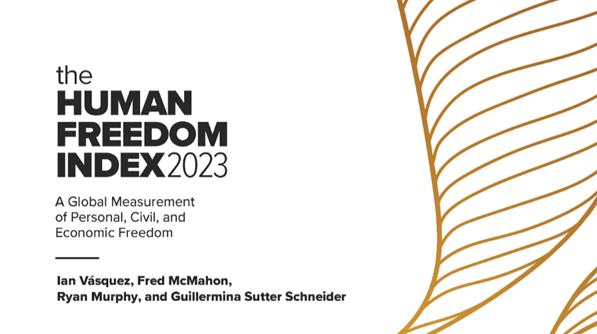
“How to Lose $2 Billion in 10 Years: Unpaid Bills Pile Up for Former Hedge-Fund Star: Philip Falcone is in a decadelong battle with the many people he owes money. They include ex-employees, a law firm and limo companies,” explains Rachel Louise Ensign in The Wall Street Journal. You see up close how quickly things unravel and shockingly, this guy was trusted to manage investors’ money.
Ensign writes:
Mr. Falcone became a hedge-fund billionaire betting on the subprime mortgage crisis. Then investors pulled money from his firm, Harbinger Capital Partners LLC, after a stretch of spotty returns. In 2013, the Securities and Exchange Commission hit him with a five-year industry ban as part of a settlement in which Mr. Falcone admitted to taking a $113 million loan from one of his funds to pay his personal taxes.
He and his wife, Lisa Falcone, lived large, but their wealth dwindled after other risky wagers didn’t work out. One big bust was a telecom company called LightSquared Inc. that filed for bankruptcy in 2012.
Around the time of the SEC settlement, Mr. Falcone stopped paying many top Harbinger employees, according to court documents that included an interview with Mr. Falcone. Some were eventually paid in the following years, according to the interview.
Other associates started filing suits claiming lack of payment. New York car service Surrey Cadillac Limousine took him to court, alleging that he didn’t pay for $34,000 worth of rides in 2014 and 2015. The law firm that represented Mr. Falcone in the SEC case and other matters said he owed it money and won a $14 million judgment against him.
Mr. Falcone said in an email the judgment is now lower. Matthew Dontzin, founding partner at the firm, said Mr. Falcone has made only “modest payments…as a result of our endlessly chasing him.” Mr. Falcone said in the interview in the law firm’s case that he continued to fly on his Gulfstream jet and Sikorsky helicopter after the SEC settlement.
“You know what happens with people who reach a certain stature in life: They start to think they’re invincible,” said Pat Ciullo, owner of Surrey Cadillac Limousine. He said his company reached a settlement with Mr. Falcone and was paid.
Forbes pegged Mr. Falcone’s net worth at more than $2 billion at its peak. By 2018, his net worth was more than $300 million, according to an accounting by Mr. Falcone that is cited in court documents. It isn’t clear how much he is worth now.
Harbinger’s remaining holdings recently included a stake in the postbankruptcy LightSquared, known as Ligado Networks. Mr. Falcone said in court in August 2020 that the Ligado investment could wind up being worth hundreds of millions of dollars but is “completely up in the air.” That company continues to grapple with regulatory issues. A Ligado spokeswoman didn’t respond to a request for comment.
Harbinger also held a large stake in a casino in Vietnam, where the government generally restricts citizens from gambling. Harbinger sold the bulk of that investment in 2019, but the money went to cover “third-party expenses,” Mr. Falcone said in a hearing.
Harbinger’s assets under management were $336 million in 2020, according to a regulatory filing. In its heyday over a decade ago, it managed $26 billion, the Journal previously reported.
Mr. Falcone has said he has failed to pay his debts because much of his remaining fortune is tied up in these illiquid investments. In an email to a real-estate agent, Mr. Falcone compared his situation to that of the main character in the film “127 Hours” who amputates his own arm when he becomes trapped under a boulder. Ms. Falcone’s production company backed the 2010 film.
Getting paid can be a yearslong process for creditors. Those whose loans are backed by collateral such as homes and cars can sell those assets to satisfy the debt. Unsecured lenders must hunt for other assets, such as bank accounts, wages or properties not pledged for other loans.
Many of the Falcones’ assets, including the New York homes, artwork and jewelry, were pledged as collateral for a loan from Melody Business Finance LLC, with a principal amount of $73 million, according to court documents in a case filed by the lender. Mr. Falcone defaulted in 2016, prompting interest to start mounting at a 20% rate, the documents say.
Mr. Falcone said in court records that he sold off his St. Barts property in 2019 and paid $29 million on the Melody loan. Melody sued Mr. Falcone for repayment last year, accusing him of selling some of the art backing the loan without giving the proceeds to the lender. Mr. Falcone said in a court filing that Melody was aware of the art sales in question.
At one point Melody tried to send someone to collect the art, but was “largely ignored or met with excuses,” according to a document filed by Melody.
Melody scheduled an auction involving the Falcones’ New York properties for April, but it was halted and the two sides reached a settlement, according to court filings. Mr. Falcone said in an email the loan balance is now “a boatload lower.” His New York City townhouse is listed as under contract to be sold. Melody representatives didn’t respond to requests for comment.
His decadelong battle with the many people he owes money continues. Another limousine company and a former Harbinger executive said in court that he owes them money, too. Bank of America Corp. said in court filings he has a roughly $200,000 past-due credit-card bill.
The owner of the building where he rents offices said in a lawsuit that Mr. Falcone owes $4 million in unpaid rent. Mr. Falcone said in a text message that he “signed an agreement with [the] landlord.” There is no agreement in the court docket and an attorney for the landlord didn’t respond to a request for comment.
Earlier this year, a creditor with a judgment outstanding against him took ownership of his Minnesota lake house, valued at about $375,000. Mr. Falcone grew up in the area and the property is surrounded by similar homes owned by some of his siblings. He has until next year to buy it back, according to a court document. He said he plans to do that.
Action Line: Have you heard of a fiduciary responsibility? If you have not, you need to understand what that means, and why it is important that anyone helping you with investments is a fiduciary. If you need help building an investment plan, I would love to talk with you. But only if you’re serious.
Originally posted on Your Survival Guy.



